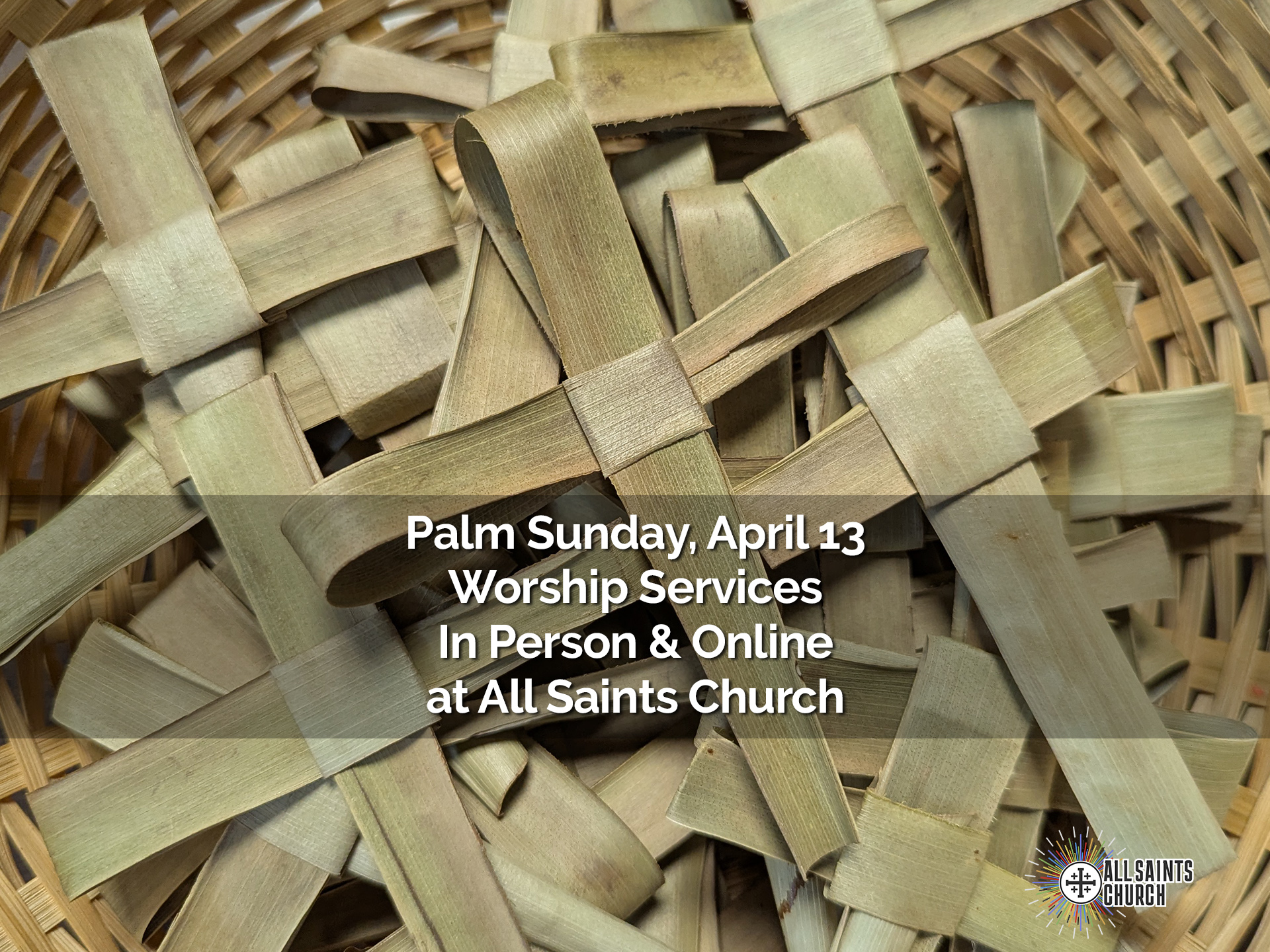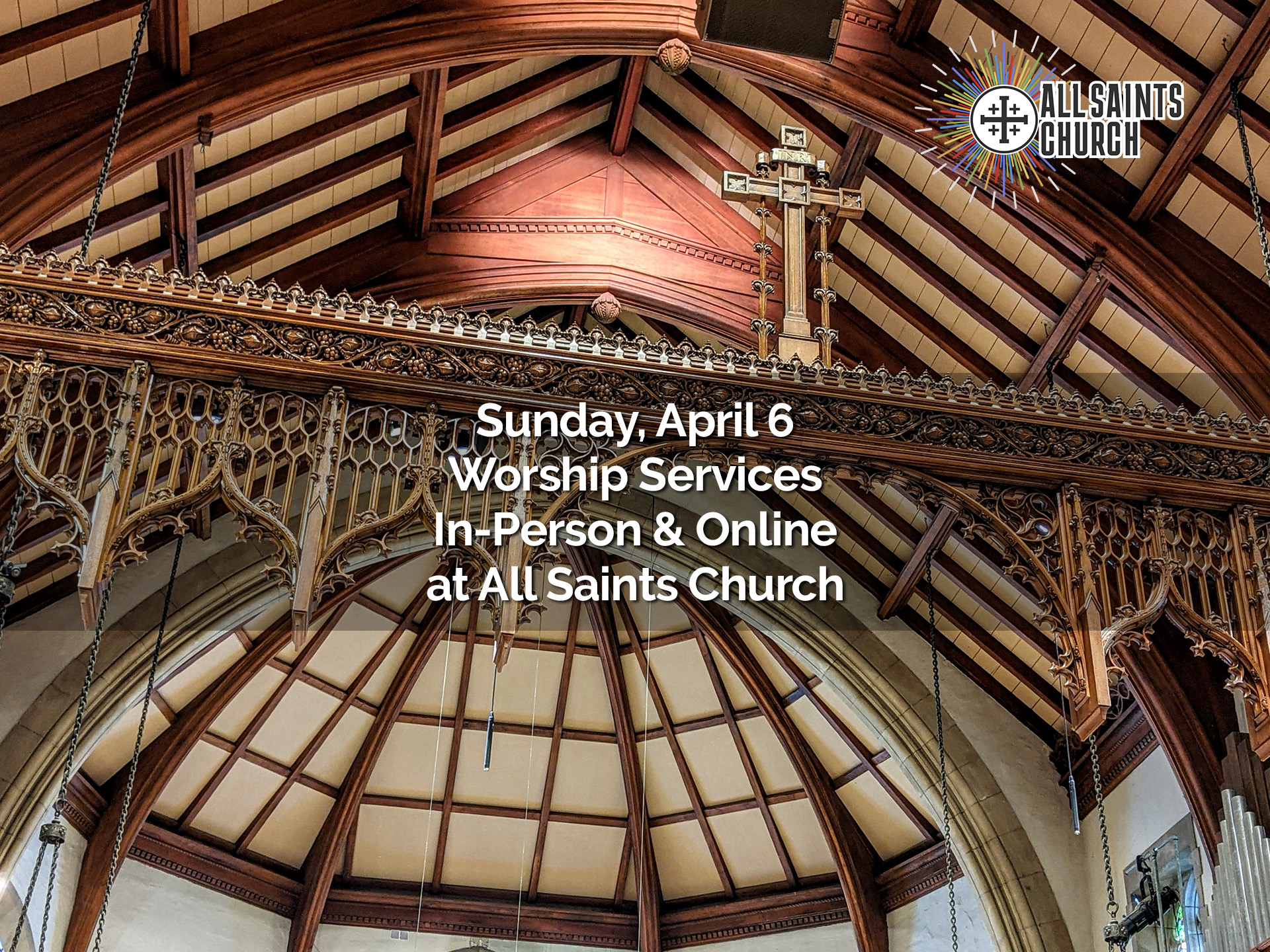Let there be peace among us and let us not be instruments of our own or others’ oppression. Amen.
This prayer is the one I think of as the Gospel According to Barbara because it is how Bishop Barbara Harris – the first woman bishop in the Anglican Communion – began every sermon I ever heard her preach.
They are words I remember every year when we celebrate the Feast of Saint Mary Magdalene. And they are words I remember with special poignancy this morning as we continue to grieve her passing to greater life on March 13th and continue to await the celebration of her life that will happen “when it’s safe to gather.”
And oh, what a celebration that will be.
Let there be peace among us and let us not be instruments of our own or others’ oppression.
This Gospel According to Barbara is quite simply a recipe for putting into action Jesus’ call to us to love our neighbors as ourselves.
And one of the ways we do that is by becoming fish who know we’re wet.
And one of the ways to explain that is to re-tell this story.
Years ago I attended a “safe church” training where the straight, white, male priest leading the workshop shared his experience: “Something I’ve had to learn is that men are mostly clueless about the inherent power their gender gives them. I certainly was.
I grew up in a church where that power was so unquestioned – where the sexism was so normative – that there was literally no awareness of the power differential. And that is where the danger is: it’s when we don’t recognize the power we have. It’s like fish don’t know they’re wet.”
“In order to make this church not just a safe place but a healthy place,” he said “we have to recognize the power we don’t know we have and then we have to change our behavior … in some cases making amends to those we’ve offended by abusing the power we didn’t know we had.”
“Abusing the power we didn’t know we had” is what happens when we’re so busy enjoying the unexamined privilege of being fish that we don’t know we’re wet.
It is what happens when we do not realize that we’re swimming in the water of sexism. And racism. And classism, heterosexism, nationalism, Christianism, ageism and ableism … to name just a few.
And what happens when we abuse the power we don’t know we have?
A very quick biblical case in point is Mary’s encounter with the Risen Lord in today’s Gospel.
It is the first resurrection story in John’s Gospel.
The second is when Jesus appears to the disciples in the upper room when Thomas is out running an errand.
The third is when Jesus appears to the disciples in the upper room when Thomas is back in the room.
The fourth is when Jesus appears to the disciples on the lakeshore.
And yet at the conclusion of the lakeshore story, John 21:14 reads: “This was now the third time Jesus appeared after he was raised from the dead.”
So either John couldn’t count … or the appearance to Mary didn’t count because she was a woman.
I’ll let you do the math.
Over and over again women who have dared to point out that our scriptural record came to us from spiritual ancestors who were like fish oblivious to the water of systemic sexism they swam in are accused of “playing the woman card” – or worse.
It is how the voices of women have been silenced, marginalized, and devalued.
It is how their history has been erased.
It is a process as ancient as the disciples who dismissed the women who first proclaimed the resurrection; as prevalent as the historians who dismissed the narratives of indigenous and enslaved people; and as recent as the fight to preserve monuments celebrating the white supremacist narrative of those who fought against the United States under the flag of the Confederacy.
Nevertheless, we persist.
Not in erasing history – but in amplifying the voices left out of the history written by fish who didn’t know they were wet. And — if we’re honest — by some who knew but didn’t care.
We persist in putting our faith in to action by refusing to be instruments of our own or others’ oppression.
We persist knowing that we are never alone in that gospel work of changing the world to align with God’s values of love, justice, and compassion.
And we persist in challenging fish who don’t know they’re wet when they abuse the power they don’t even know they have – even though it is both hard work and risky business.
Even when it’s scary. Even when it’s exhausting. Even in moments like this, when the shifting sands are shifting so fast it feels like we’re trying to juggle on a tilt-a-whirl.
Even when we are called to challenge and change things it never occurred to us we would be called to challenge and change. Like children in cages at our borders. Like leaders who listen to game show hosts rather than scientists during a global pandemic. Like protesters in the streets of Portland being detained in unmarked vans by unidentified federal agents.
John 8:32 tells us that that truth will set us free, but the rest of the Gospel narrative – along with our lived experience of history – combine to tell us that truth telling comes with a price tag. And I can’t think of anyone who knew that better than John Lewis – the great American hero whose death on Friday felt like a gut punch to a nation already reeling with cumulative grief.
Hear then this morning the Gospel According to John Lewis … as recorded on Twitter:
“Do not get lost in a sea of despair. Do not become bitter or hostile. Be hopeful, be optimistic. Never, ever, be afraid to make some noise and get in good trouble, necessary trouble. We will find a way to make a way out of no way.”
What John Lewis knew and lived and taught is that the change that doesn’t come easy can be a catalyst for transformation – but in the process it can either help us to find new meaning or it can tempt us to close down to become fearful, anxious, and bitter.
And boy howdy are we are seeing all the above play out in these extraordinary times of both challenge and opportunity in our nation, our church, and our world.
Change happens – whether we like it or not – but transformation is the result of letting go of the old assumptions we are oh-so-tempted to cling to in these confusing, shadowy, tilt-a-whirl times.
Yet our anchor is this storm of change and challenge is our trust that no matter what else changes around us, what is eternally changeless is the indestructible power of God’s inexhaustible love.
So today as we celebrate the Feast of Mary Magdalene – the apostle to the apostles whose story could not be erased from history no matter how hard they tried – let us commit to continue to claim that indestructible power as our own superpower as we go about the work we have been given to do.
The work of recognizing when we have power we didn’t know we had and — in some cases — the work of making amends to those we’ve harmed by abusing the power we didn’t know we had.
That, my brothers and sisters and gender fluid siblings, is the work of doing justice.
The work of loving mercy. The work of walking humbly with our God. And it is our work to do.
And now — since I began with words from Barbara Harris — let me end with words from her as well.
These are words she said to me one day when I was overwhelmed and discouraged and literally immobilized with fear. She listened to me for a good long while and then reached over and put her hand over mine and said “Remember that the power behind you is greater than the challenges ahead of you and that absolutely nothing is greater than our God who can make a way where there is no way.”
Make a way as we stand on the shoulders of Blessed Mary and Blessed Barbara and Blessed John and all the saints who have gone before us in the struggle and who cheer us on from the balcony in this moment that is our moment to be the change we want to see.
Make a way to a place where all fish know they are wet, where all are welcome and celebrated as members of God’s beloved community and where there is not a single stranger left at the gate.
One more time … for Mary and for Barbara and for John:
Let there be peace among us and let us not be instruments of our own or others’ oppression. Amen.
Preached by Susan Russell at All Saints Church on Sunday, July 19, 2020.



